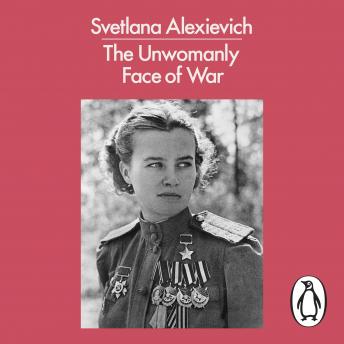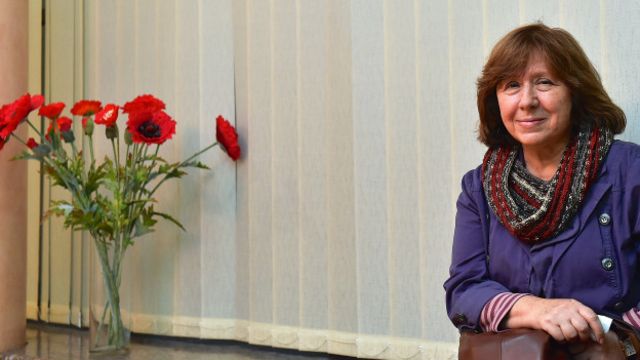

She has exposed that journalistic nature, as well, with works such a Voices of Chernobyl or Secondhand Time, her most recent work about the collapse of the former Soviet Union, in which, as in The Unwomanly Face of War, she recollects hundreds of voices that tell not the story of tragedy and war but the story of the soul that gets to survive throughout them. It seems a lot of nights to write a book, but the Nobel Prize has a taste for those hidden truths that age with the sun.

Svetlana Alexievich declares with the title of her book - first published in 1985, but not translated uncensored into English until now - decades of testimonies and tapes recollected over seven years of research. What a beautiful and tragic way of crafting genders for a profession, a feminine form born in war. The feminine forms were born there, in the war ” A linguistic problem even emerged: no feminine gender had existed till then for the words tank driver, infantryman, machine gunner, because women had never done that work.

“ They mastered all military specialties, including the most “masculine” ones.

Within these pages is a truth that we didn’t hear in school, and it has the appearance and soul of a woman battling for her life. It only takes five minutes of a war movie to spot a cargo of men with the photographs of their wives and girlfriends as only memoir of a woman’s touch the detail that movies and books don’t usually illustrate is that females were more than a consolation portrait back in 1939, when the world became a battle camp from all possible skies, and in few accounts has this story has been told more accurately and faithfully that in Svetlana Alexievich’s The Unwomanly Face of War: An Oral History of Women in World War II. Of course, the first statement isn’t entirely true yes, girls had to wear men’s clothes and get rid of their vast and wavy braids but that bravery was for one fair reason: to fight for their country in the middle of a World War. Even now, when rights and equality cast a tangible pressure within the societies refusing to recognize them, it can be curious to think about the war beyond the profile of manly soldiers in the front. It comes with a terrifying emotion, the stanza of at least three million skilled and decided women leaving their houses and schools to wear men’s underwear and to shave their heads. I’ve understood that for a woman to kill is much more difficult ” She carries it inside for a long time, takes care of it. And even more unbearable is to have to kill, because a woman gives life. “ In the center, there is always the insufferable idea of death, nobody wants to die.


 0 kommentar(er)
0 kommentar(er)
